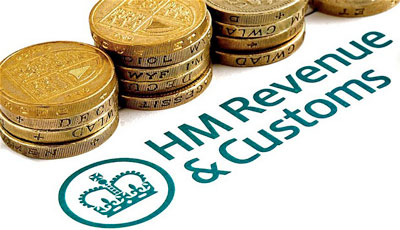Small business bill: HMRC to share VAT data with credit agencies

Under the guise of increasing access to finance, the government brought forward proposals to make VAT registration data available to third parties in the Small Business, Enterprise and Employment Bill published yesterday.
As previewed in the Queen’s speech, the bill addresses:
- Access to finance for small businesses and improving payment practices, plus initiatives to open public procurement up to SMEs
- Increasing transparency with a register of beneficial ownership, stronger rules on director disqualifications and insolvency reform
- Tackling national minimum wage abuses and cracking down on abuse in zero hours contracts
- make it easier for small businesses to expand overseas
- A new Statutory Code and independent adjudicator to ensure that publicans who are tied to a pub owning company are treated fairly
- More flexible childcare regulations.
All of these, and more, have been bundled together into the 230-page bill, which is accompanied by another 300 pages of factsheets, impact assessments and legislative memos. As always, the devil is in the detail.
Few can argue with the initiative to improve the landscape for SME finance, but the bill itself m makes no further commitment to create or incentivise non-bank lending than through the £1.25bn set aside for British Business Bank (pending EU state aid approval) and some a requirement for banks to refer those turned down for loans to the alternativebusinessfunding.co.uk website.
Instead the bill veers pulls together projects and intitiatives that have been sitting around Whitehall for the past year or so, including legislation to speed up cheque clearing and legislative groundwork to make it easier for “challenger banks and alternative finance providers to conduct accurate risk assessments”.
Credit information
The credit information reforms give the Treasury responsibility for new credit information regulations requiring banks to provide information about their business customers to designated credit reference agencies, and for those agencies to provide information to finance providers and regulators, including the Bank of England and the Financial Conduct Authority.
HMRC, too, will be part of this new credit information landscape and will be empowered to disclose VAT registration information to third parties for the purposes of assessing creditworthiness, financial compliance or fraud risk. There are restrictions on the receivers of such information using the data for any other purpose, and clause 2 of the relevant section in the bill (6) says that HMRC is not authorised to disclose non-financial details on any company.
When the Guardian reported in April that HMRC was considering sharing anonymised tax data with researchers, the reaction was sceptical. AccountingWEB member normafogg21 commented on that proposal, “I have no confidence whatsoever that the data they do release will remain confidential.” While linked credit checking, the bill will pave the way for more extensive data sharing. Will it attract the same level of resistance?
Transparency and reporting
Several aspects of company law are covered in the bill’s sections on transparency, company filing and disqualifying directors. These policies were set out in a consultation last summer and include a new register of “people with significant control” over companies to deter people using UK companies as fronts for clandestine and illegal activities. The new law will also abolish bearer shares and prohibit the use of corporate directors (with some exceptions to be set out in regulations).
As predicted, the bill does away with the statutory requirement to file an annual return with Companies House. Instead, they will be required to submit a “confirmation statement” within 14 days of the end of the period that their information is up to date. The legal assumption here is that companies have to notify the registrar of significant changes in their composition, location or shareholdings throughout the year, so there is no need to duplicate this information in an annual return.
The bill also brings in a swathe of new powers allowing the secretary of state to seek disqualification orders against directors who have been convicted of corporate wrongdoing abroad or who have been deemed to be unfit due to any other breaches their duties as directors.
By May 2017, a streamlined process will be in place to incorporate a company and and register it for corporation tax, VAT and PAYE online. At the other end of their life, processes for striking off a company will be simplified with shorter timescales and email notifications rather than letters, if the company agrees.
Source: accountingweb





























